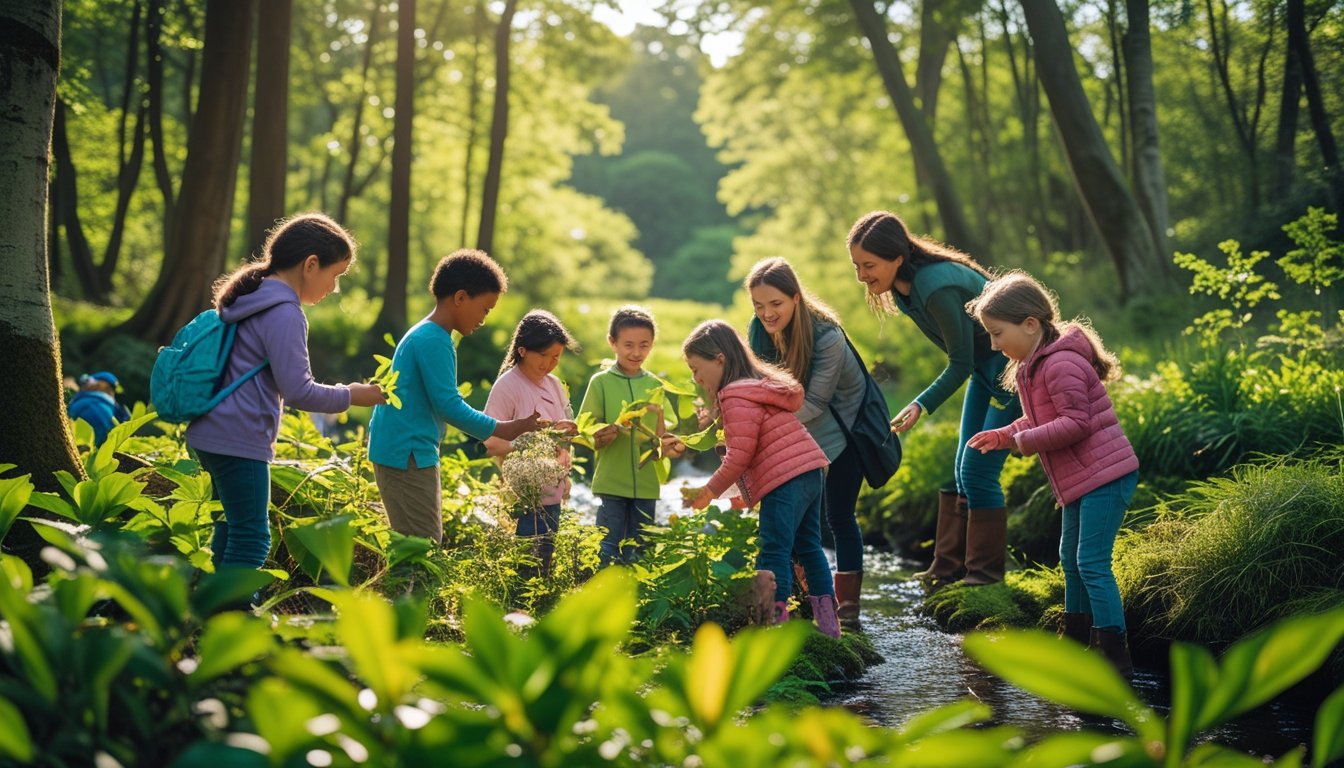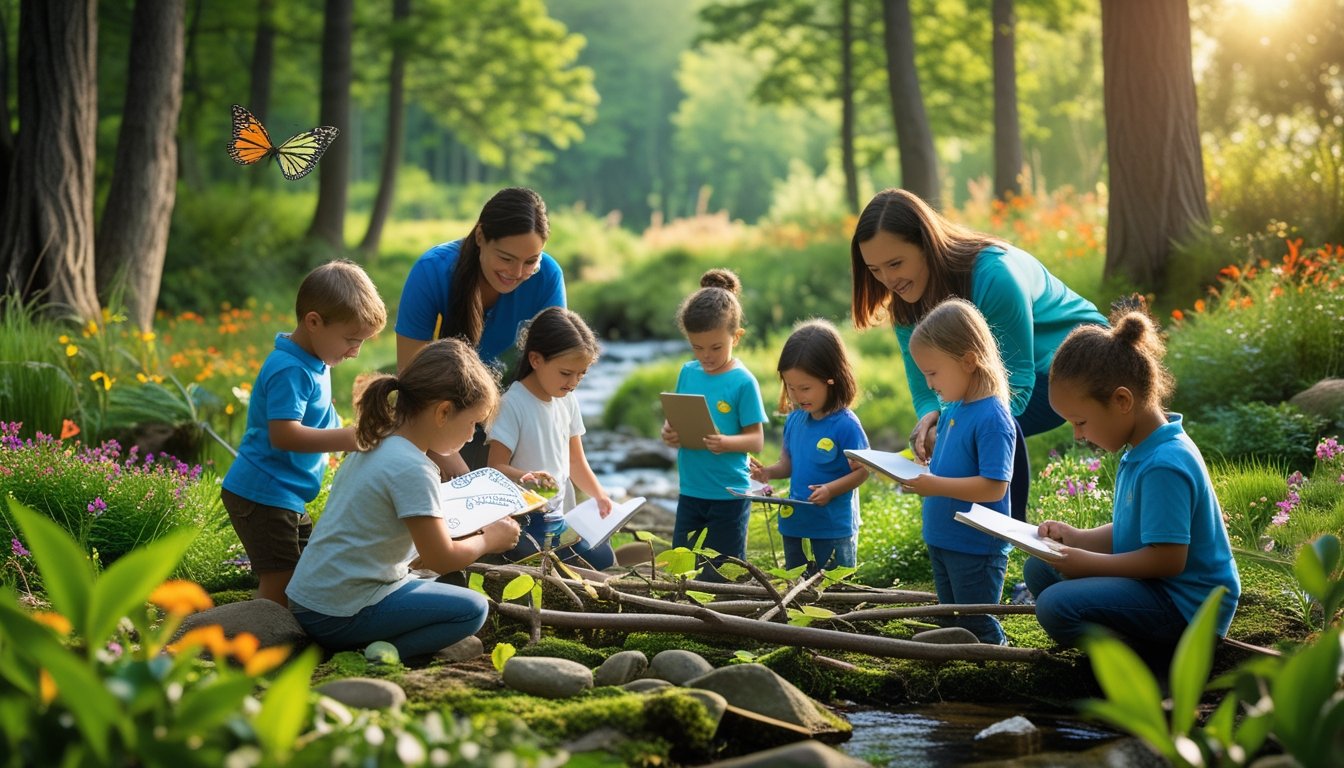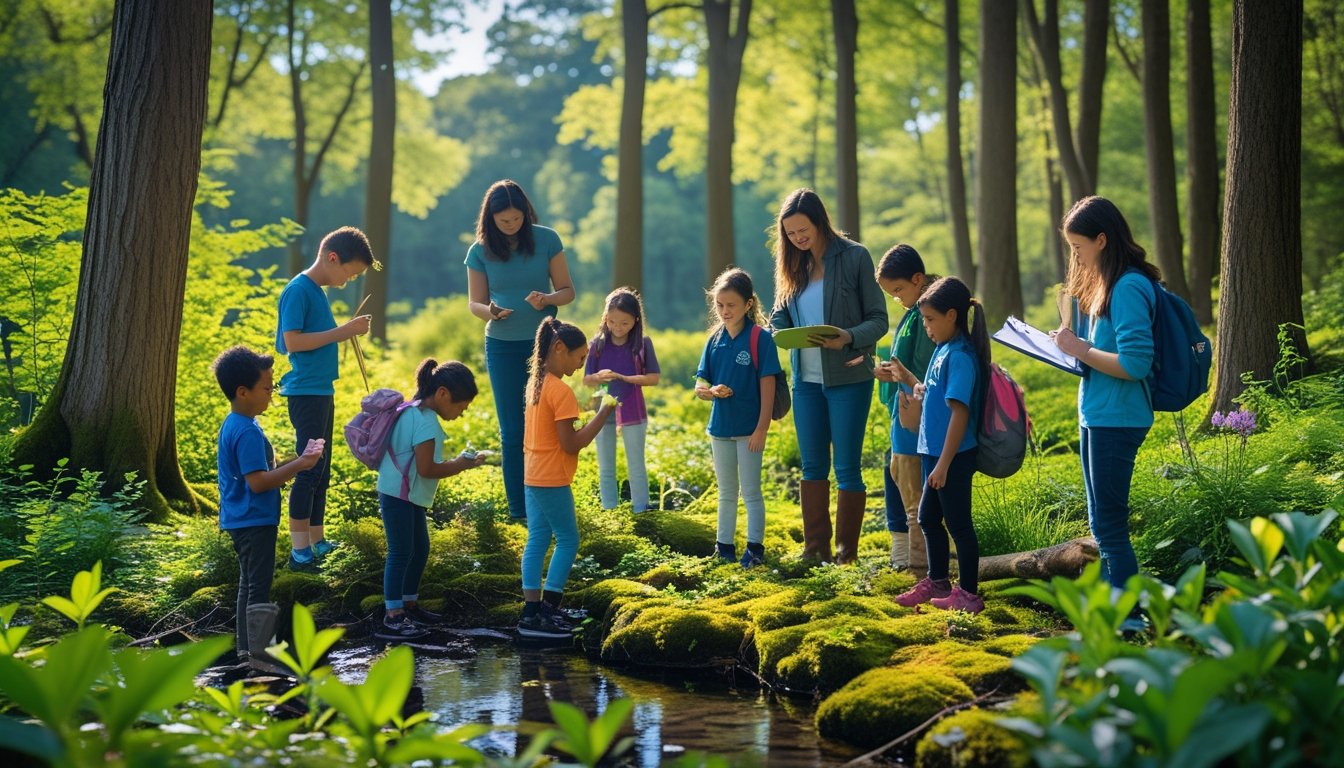Late updated: 31 Oct 2025 09:10
Written by:
Encouraging Creativity Through Nature Exploration: Unlocking Imagination in Natural Settings
Exploring nature is a powerful way to spark creativity and enhance critical thinking in both children and adults. Immersing ourselves in natural surroundings encourages a sense of wonder that stimulates our minds, making us more open to new ideas and imaginative thinking. By interacting with nature, we foster creativity, enhance problem-solving skills, and develop a deeper connection with the world around us.

Our fast-paced lives often limit our opportunities to genuinely engage with the natural world. Yet, stepping outdoors allows us to pause, observe, and draw inspiration from the simple elements around us. From crafting artwork with natural materials to engaging in unstructured play, the possibilities for creative exercises in nature are endless.
Nature exploration not only nurtures artistic and creative skills but also strengthens our cognitive abilities. As we discover natural settings, we learn to adapt and find innovative solutions to challenges. This exploration provides lifelong benefits, encouraging a mindset prepared for both personal and environmental growth.
Key Takeaways
- Nature enhances creativity and critical thinking.
- Outdoor activities develop problem-solving skills.
- Engaging with nature fosters long-term personal growth.
Key Foundations of Encouraging Creativity Through Nature Exploration

Engaging with nature is a vital way to inspire creativity. Connecting with natural environments offers unique opportunities for imaginative exploration and fosters divergent thinking. Here, we explore essential principles that make nature a powerful catalyst for creative expression.
The Nature–Creativity Connection
Nature immersion is a fundamental component in enhancing our creative capacities. By interacting with diverse natural settings, we allow our minds to wander freely and develop unconventional ideas. This connection with the natural world encourages exploration beyond routine thought patterns, resulting in innovative thinking.
Surrounding ourselves with trees, plants, and wildlife creates an enriching backdrop for inspiration. Studies suggest that exposure to nature reduces stress, which opens the mind for more creative insight. Thus, our natural surroundings play a critical role in enhancing creative imagination and expression.
Fostering Creative Thinking in Natural Environments
Natural environments offer fertile ground for fostering creative thinking. These settings eliminate traditional constraints, allowing us to explore ideas without boundaries. The tactile experience of interacting with natural materials like leaves, rocks, and water stimulates sensory engagement, priming the mind for divergent thinking processes.
We actively nurture curiosity by providing opportunities for reflective play and exploration. Activities such as nature walks, journaling, or sketching outdoors can enhance observational skills and lead to fresh perspectives. Engaging with nature unlocks new pathways for creative thought by promoting open-ended inquiry and active learning.
Open-Ended Play and Imaginative Exploration
Open-ended play in natural settings is a powerful vehicle for developing creativity. By giving children the freedom to explore and interact with the environment, we encourage them to use their imaginations more fully. This type of play is inherently adaptable, allowing for personal expression and variety in experiences.
Imaginative exploration allows us to transform simple natural elements into tools for creativity. Sticks become magic wands, and leaves can turn into pieces of art. These opportunities for transformation stimulate innovative thinking, making nature a rich canvas for fostering creativity in both children and adults alike.
Through open-ended play, we build problem-solving skills and foster resilience, which are lifelong assets in creative development.
Nurturing Development and Problem-Solving Skills Outdoors
Outdoor environments offer rich opportunities to foster children's development and problem-solving skills. By exploring nature, they encounter situations that stimulate curiosity, enhance cognitive functions, and build essential life skills.
Curiosity and Hands-On Exploration
Children's innate curiosity fuels their desire to explore the natural world. Outdoor play provides countless opportunities for hands-on exploration that sparks curiosity and imaginative thinking. Nature walks and scavenger hunts encourage children to ask questions, seek answers, and become more engaged learners.
As they interact with their surroundings, children learn to observe, question, and experiment. They develop fine motor skills by handling natural materials, such as leaves, sticks, and stones. This active participation in nature lays a foundation for lifelong learning and intellectual growth.
Problem-Solving and Critical Thinking Skills in Nature
Nature presents an array of open-ended scenarios that require children to adapt and think critically. Outdoor play provides an ideal setting for them to tackle unexpected challenges, from building structures with fallen branches to navigating uneven terrain. These experiences enhance their problem-solving abilities and promote cognitive development.
Cooperation and teamwork are often essential in such activities. Whether collaborating to build a fort or working together in a game, children develop communication skills and learn the importance of cooperation. This collaborative learning environment also sharpens their critical thinking and decision-making capabilities.
The Role of Sensory Exploration
Sensory exploration in nature is crucial for developing cognitive and motor skills. Children engage with varying textures, sounds, and sights, which stimulates their senses and enriches their learning experience. Listening to rustling leaves or birdsong can improve attention and encourage "soft fascination," a gentle engagement with the environment that rejuvenates the mind.
These sensory experiences foster creativity and storytelling abilities. By crafting narratives around their sensory experiences, children learn to express themselves and develop empathy. This connection with nature also strengthens their cognitive skills and fosters a deeper understanding of their surroundings.
Independence, Resilience, and Mental Health Benefits
Outdoor exploration encourages independence and builds resilience in children. As they navigate natural environments, they learn to assess risks, make decisions, and build confidence. These experiences teach responsibility and foster a sense of independence.
Moreover, time spent outdoors offers significant mental health benefits. Exposure to natural environments can reduce stress, improve mood, and enhance overall well-being. Outdoor play also cultivates a sense of responsibility towards the environment, helping children develop empathy and a lifelong connection to nature. This holistic development is pivotal in nurturing well-rounded, resilient individuals.
Frequently Asked Questions

By exploring natural environments, individuals can experience a notable boost in creative thinking. Engaging in outdoor activities offers diverse benefits which stimulate imagination, encourage problem-solving, and foster a deeper connection with the world.
How does exposure to nature stimulate creative thinking?
Exposure to natural settings offers diverse stimuli that inspire the mind. Organic landscapes promote relaxation, allowing the mind to wander and generate new ideas. Patterns, textures, and the unpredictability of nature ignite imagination and creative thought.
What activities in nature can enhance creativity in children?
Activities such as nature walks, scavenger hunts, and building shelters using natural materials promote creativity. Children benefit from open-ended play where they invent games and solve challenges. Gardening and observing wildlife also stimulate curiosity and creative thinking.
Are there proven psychological benefits to engaging with the outdoors for creative processes?
Research suggests that spending time in nature reduces stress and anxiety, clears the mind, and enhances cognitive function. These psychological benefits create an ideal mental space for creative processes to flourish, supporting problem-solving and innovation.
What role does biodiversity play in fostering creativity among individuals?
Biodiversity provides a wide range of shapes, colours, and behaviours to observe. The complexity and variety found in diverse ecosystems challenge our minds to recognise patterns and beauty, prompting unique ideas and enhancing creative expression.
How can we design educational programmes that utilise natural settings to boost creativity?
We can design educational programmes by incorporating outdoor lessons and hands-on activities in natural settings. These programmes should allow learners to explore, ask questions, and collaborate on tasks, fostering a supportive environment where creativity can thrive.
What are the barriers to accessing natural environments and how can we overcome them for creative development?
Urbanisation and limited access to green spaces are significant barriers. Solutions include creating community gardens, incorporating more green spaces in urban planning, and organising field trips. Awareness campaigns can also highlight the importance of nature access for creative and personal development.
